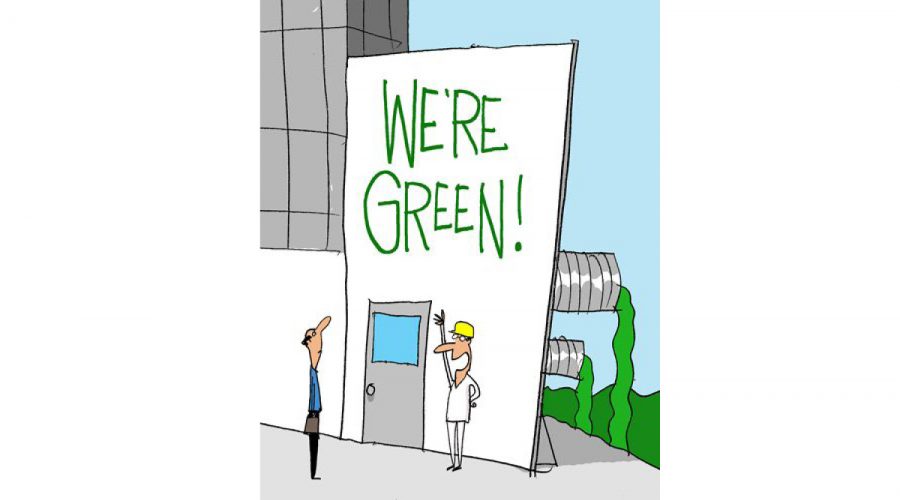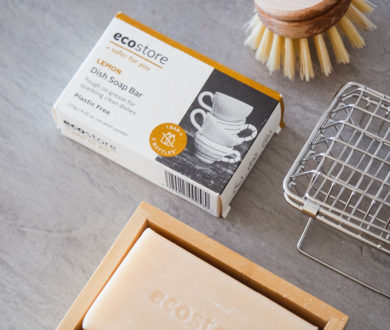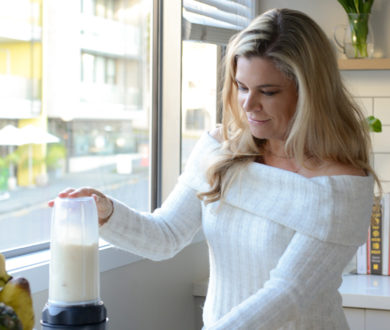Greenwashing; when a company tries to portray itself as more environmentally minded than it actually is, has intensified in recent years as consumers have warmed to sustainable and organic products and services. Brands, trying to capitalise on that trend, often try to outdo one another with eco-credentials.
But in the rush to be seen as green, companies often exaggerate claims, or simply make things up. Ecostore Groups CEO, Pablo Kraus gives his insight into the local greenwashing game and what we as consumers can do to be more aware of it.

Sign up to our free EDM subscription today.
“In the self care aisle of the supermarket we are bombarded with countless ways to save the planet, to the point that it’s becoming difficult to find a product that’s not pushing an ethical claim.
Driven by consumers keen to do their part, the green space has become a highly profitable arena, but we need to be doing more than just buying bottles featuring pictures of happy healthy critters or smiling babies. It’s up to individuals to be more informed about what they buy, and why.
A recent study showed that New Zealand is globally well ahead of the game, with 30 percent of us wanting to buy sustainable, responsible products. In Australia it’s 30 percent of consumers are thinking green and surprisingly China has the largest group of conscious consumers, at more than 600 million people.

Many companies see this as a tantalising opportunity, which has led to a significant rise in greenwashing, where brands provide misleading information about their products’ environmental impact.
Ultimately the choice to go green is in the hands of you, the consumer. By arming yourselves with more information, you can make the right choices for the betterment of both yourself and the planet.
To determine if a brand is legitimately ethical, it comes back to authenticity and credibility. Whether brands are being transparent. Do they for example disclose all of their ingredients? Can they back up their claims? Where was their product manufactured? Where and how do they source their ingredients? And do they have a clear purpose as a business and a brand?
Understanding which companies have a clear purpose should drive purchasing decisions’. Do their ingredients contribute to making safer products? Are they sustainable and renewable, making products safer for our environment? And does the company have a transparent supply chain?
Ecostore was founded on the precautionary principle 27 years ago. If there is any doubt about an ingredient, a material we use, a company or a service we use, we will find a safer alternative. Today we continue to proudly develop, manufacture and pack our home, body and baby care products at our own carboNZero certified factory in Auckland and share them with the world.
Ultimately the environmental responsibility is in the hands of the consumer. By understanding and recognising the red flags of greenwashing, and choosing products that can actually back up their bold claims, manufactured by companies that are genuinely committed to the eco cause, consumers endorse brands that are doing the right thing for us all. This choice impacts the future of our planet and will reverberate through generations to come.”

The 5 Sins of Greenwashing
1. Compostable Packaging
The intention may come from the right place but consumers need to refer to the packaging and either dispose of this in a home compost, or seek out a commercial composting facility.
The most important thing for consumers to understand is that compostable packaging cannot go into your recycling bin, because if it ends up in landfill it releases methane gas, which is 80 times more potent than CO2, a key contributor to climate warming.
2. Natural packaging
Natural materials used alongside conventional packaging, such as a bamboo lid on a plastic bottle, can create the illusion of eco credentials. These products contaminate the recycling stream and divert straight to landfill with the rest of the plastic attached to them. Instead, look for fully recyclable, reusable or closed loop products.
3. Where is it manufactured?
Products produced internationally have a far greater carbon footprint than locally-made NZ products. If the product is produced by a third party manufacturer, which may make products for companies that test on animals, you could also unintentionally support something that doesn’t align with your values.
4. You get what you pay for
Good quality is never cheap and cheap quality is never good. Making products that are better for the environment is not easy nor is it cost-effective. Any brand claiming to look out for the environment, at a much lower price point, should be treated with suspicion. Either it doesn’t actually work or it could be using a harsh natural chemical that’s bad for your health and the planet.
5. The natural tag
Just because a product claims to be natural, doesn’t make it environmentally friendly. As an extreme example, oil comes from the ground and is therefore natural, however when it’s released into the environment the impact can be severe.
When it comes to household cleaners and cosmetic products keep an eye out for Benzalkonium Chloride, a chemical used for its antibacterial properties. This organic salt is highly toxic to aquatic organisms, a cause for concern considering these products are often washed down the drain. At Ecostore, we eliminate the need for harmful Benzalkonium Chloride by formulating our products with a low pH to provide anti-bacterial/disinfection.
Another example, Cocamide DEA/MEA, is derived from the reaction of coconut oil and an organic chemical compound and can be found in many shampoos and cosmetic products. It is also a skin, eye and respiratory tract irritant and classified as possibly carcinogenic to humans.
At Ecostore we prefer to use APGs, Sodium Coco Sulfate and Sodium Lauryl Amphoacetate as our surfactants, which have comparatively milder effect on the skin and your health.










